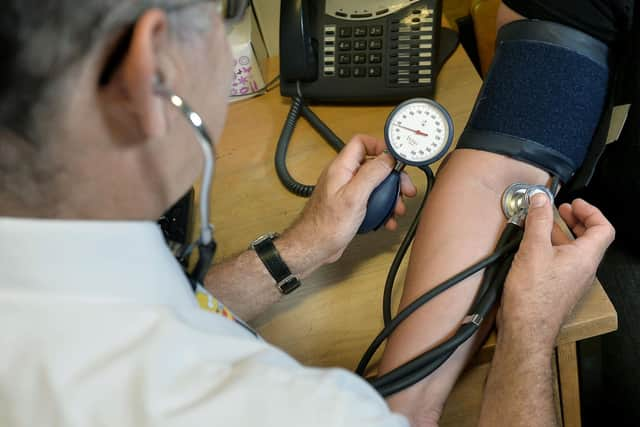Mansfield residents among East Midlands' least healthy
and live on Freeview channel 276
The data shows wide disparities in health across England and Wales, with some areas having more than three times more people in bad health than others.
Health think tank the Nuffield Trust said the postcode lottery of health tracks socio-economic deprivation and called on the Government to address disparities in healthcare, provision and overall health guidance.
Advertisement
Hide AdAdvertisement
Hide AdOffice for National Statistics figures show 7.3 per cent of residents in Mansfield said they were in “bad or very bad” general health in the 2021 census, one of the highest proportions in the East Midlands.


Nationally – and regionally across the East Midlands – 5.4 per cent of people responded to the census saying they were in bad or very bad health.
The trust said people living in certain areas fair much worse than others, and that the improvement in health across the country has not been enjoyed uniformly.
Sally Gainsbury, trust senior fellow, said: “The role of socio-economic inequalities was often overlooked in health inequalities policy in the decade up until the pandemic. NHS England needs to follow through with their new focus on economic deprivation, as well as other, often related, drivers of health inequalities such as racial discrimination and social exclusion.”
Advertisement
Hide AdAdvertisement
Hide AdThere were also regional disparities in the number of unpaid carers across the country, the figures show.
In London and the South East, 4 per cent of the population said they provided at least 20 hours of unpaid care per week. In Mansfield, 6.2 per cent of the population said they provided high levels of unpaid care.
The data also shows 10.3 per cent of Mansfield residents were classed as disabled in 2021.
By the ONS ranking of health levels – which takes into account poor health, disability and unpaid care – Mansfield ranks 310th of England and Wales's 331 local authority areas.
A spokesman for the Department for Health and Social Care said the gap in the number of years people live in good health is “stark and unacceptable”.
